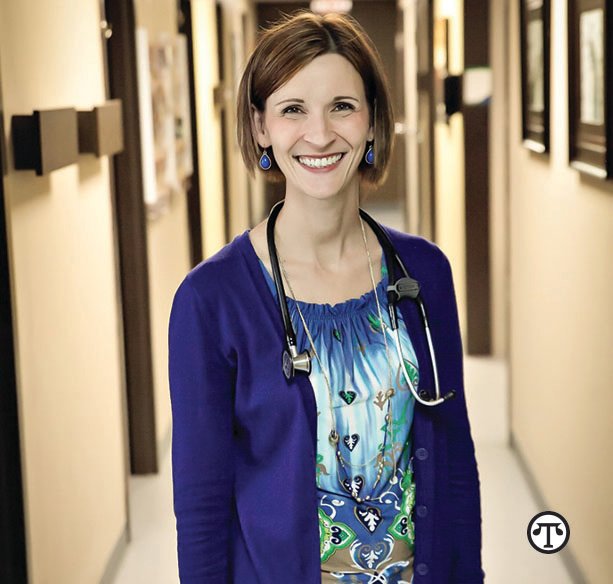Midwestern Doctor Cares For Rural Community Amid Rise In COVID Cases

(NAPSI)—In rural Kansas, Dr. Kristina Darnauer is one of only four doctors practicing in Rice County. She is also the only family medicine doctor practicing in Sterling, where she lives with her husband and three children. Dr. Darnauer delivers local babies, visits nursing homes, maintains a clinical practice and covers the ER.
This year, her duties have expanded to talking to her fellow community members about the COVID-19 vaccines and answering their questions. Roughly 60% of local residents remain unvaccinated and Dr. Darnauer and her hospital staff have been seeing the effects firsthand.
“This is the hardest it’s been for us. Our health system is totally overwhelmed,” said Dr. Darnauer, reflecting on the difficult months since the Delta variant first took hold in the United States this past summer. She characterized the local health community as “drowning” as they strive to provide the best possible care for their patients.
Due to overburdened intensive care units in surrounding area hospitals, there have been times when Dr. Darnauer hasn’t been able to transfer patients to a larger hospital for more specialized care.
“I’ve had two COVID-19 patients die in my hospital in the last week,” she observed in late September. “My last ER weekend, I saw more COVID patients coming in sick than I have before.”
A Health Issue
COVID-19 remains a serious threat across the U.S. as we head into the pandemic’s second winter. The Delta variant, which now makes up virtually all cases in the country, spreads more easily than the common cold and has led to a dramatic increase in hospitalizations nationwide. This has been deeply felt in rural America, where case rates in September were roughly 54% higher than elsewhere, and mortality rates are now more than double that of urban areas.
What The CDC Says
According to the Centers For Disease Control and Prevention, people who have not yet been vaccinated are 29 times more likely to be hospitalized and 11 times more likely to die from COVID-19 complications, compared to those who have already received their vaccine.
Other CDC data reveals people ages 18 to 49 are the largest demographic hospitalized for COVID-19 as of September 25. Studies also show that even for individuals who have a mild case of COVID-19 and avoid hospitalization, they remain at risk of post-COVID symptoms, often called long COVID, that may last for weeks, months or longer. Symptoms of long COVID appear to affect as many as one in three people infected with the virus.
Doctor’s Advice
Many in her close-knit community come to Dr. Darnauer with questions and concerns about being vaccinated against COVID-19 and whether it’s the right choice for their family. Dr. Darnauer’s response to her patients is clear and to the point: “I’ve recommended the vaccine for anyone I love. Period.”
COVID-19 vaccines are safe, effective, widely available and free to everyone in the U.S. age twelve and older. Additionally, the FDA has formally approved Pfizer’s COVID-19 vaccine in the U.S. for those sixteen and older.
“We are not out of the woods,” says Dr. Darnauer, “but we have a really powerful tool to fight this and that’s the vaccine.”
Learn More
If you have questions about the COVID-19 vaccines, talk to a doctor or pharmacist and visit www.GetVaccineAnswers.org for the latest information.
COVID-19 remains a serious threat across the U.S. as we head into the pandemic’s second winter. The Delta variant, which now makes up virtually all cases in the country, spreads more easily than the common cold and has led to a dramatic increase in hospitalizations nationwide. This has been deeply felt in rural America, where case rates in September were roughly 54% higher than elsewhere, and mortality rates are now more than double that of urban areas.
Editor’s Note: While this article can be of interest to anyone, it is especially useful to those who live in the Midwest, particularly the state of Kansas.

““We have a really powerful tool to fight COVID-19 and that’s the vaccine,” says Kansas doctor, Kristina Darnauer, M.D.https://bit.ly/3ppCT5e“
